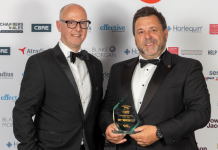According to Savills, take-up of life science related space in the UK hit 629,374 sq ft at the end of H1 2022, 11% above last year’s H1 total and only 29% below the total amount transacted in 2021.
Savills looked at the core markets of Oxford, Cambridge, Greater London, the South East, White City and central London, recording all types of deals within the life science sector including offices, laboratories and office space set to be converted into labs. As of H1 2022, 62% of deals can be attributed to the Oxford and Cambridge markets, on par with last year’s H1 figure.
This year also saw the first lettings of pre-fitted lab space in London, which will start to provide the evidence that will support many of the lab schemes being delivered in the capital over the next two to three years.
Last year saw total take-up reach 887,220 sq ft, which remains consistent with figures dating back to 2018. However, looking ahead Savills anticipates a potential upside for 2022 and into 2023 as pre-letting activity increases due to the number of lab enabled schemes coming through the pipeline over the next 12-18 months. Examples include Prologis’s 103,000 sq ft building, 1000 Discovery Drive, which is under construction at Cambridge Biomedical Campus, Reef and BA’s 112,000 sq ft Apex Building, at Tribeca, Kings Cross and the first phase of St John’s College’s Thomas White Oxford, Cadillac Fairview and Stanhope’s Oxford North scheme totalling 145,000 sq ft, which is due to start on site later this year.
At present, there is as much as 4.5 million sq ft of requirements across London, Stevenage, Oxford and Cambridge, which will likely fuel activity during the second half of the year.
In regards to venture capital (VC) investment within the UK life science sector, including biotech, pharma and medtech, volumes reached £1.6 billion in H1 2022, 49% down on last year’s figure, but similar to that of 2020. Despite the drop, Savills notes that this is in line with the global picture when it comes to VC and the wall of capital raised in the UK will continue to fuel growth over the next few years, supporting the need for more real estate.
Tom Mellows, head of UK science at Savills, comments: “Whilst fundraising in the life science sector has reduced considerably since last year, this is largely to do with the significant macro-economic headwinds that are currently impacting all markets at this time. As we can see from the transactional figures, life science occupiers remain resilient and we are likely to see take-up surpassing long-term averages as further development comes through. It is due to the continued confidence in the sector that we are seeing more landlords looking to enter this space.”






















